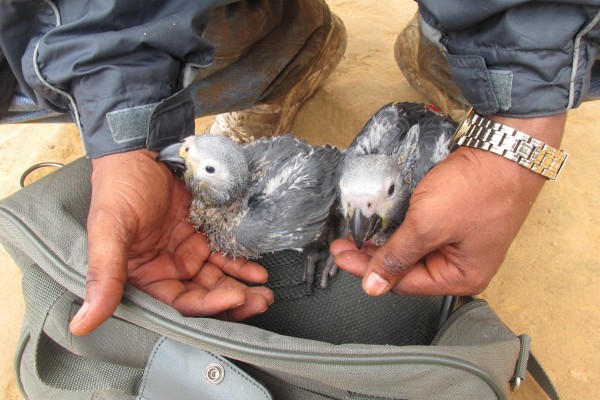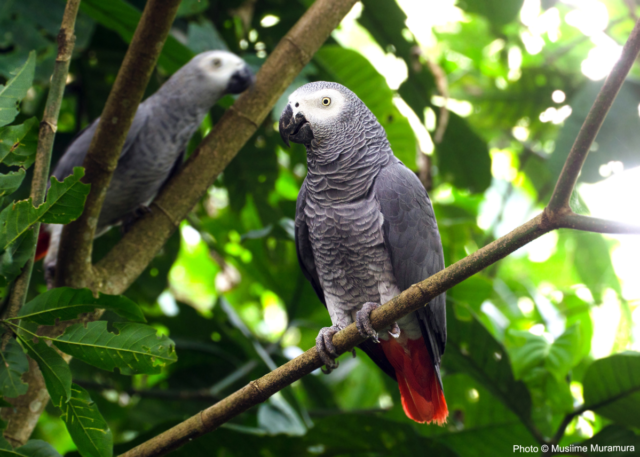Presently the Bronx Zoo and the Wildlife Conservation Society are treating the parrots in a facility built for their specific care – already, over 900 have been released back into the wild (video below).

Just how bad is this situation?
In a word, dismal. The population of African grey parrots has dropped significantly in West, Central and East Africa, where they use to be quite abundant. They are now extremely rare or locally extinct in Rwanda, Tanzania, Benin, Burundi, Kenya, and Togo.
“In Ghana alone, African grey parrot populations are estimated to have declined by 90-99 percent and in many other parts of their range,” notes a statement from Wildlife Conservation Society (WCS), “forests that were once full of their ‘music’ are now eerily quiet.”
What are people doing to help?
As you’ll see in the video, the Bronx Zoo and the Wildlife Conservation Society are working to resue, treat, and release the birds back into the wild.
“It was heartbreaking to see so many injured parrots struggling to stay alive,” says David Oehler, the Bronx ZooCurator for Ornithology . “The WCS Congo veterinary staff is making heroic efforts to save as many parrots as possible, and we were honored to provide our expertise and assistance.”
“Traffickers are vacuuming up African gray parrots from Africa’s forests,” says Emma Stokes, WCS Regional Director for Central Africa. “This heartbreaking footage [below] should serve as a wake-up call to any prospective buyers of parrots to avoid them unless they come from a highly reputable dealer and you are absolutely certain they were bred in captivity and not taken from the wild.”
Does this change your view on keeping wild birds? Tell us in the comments







